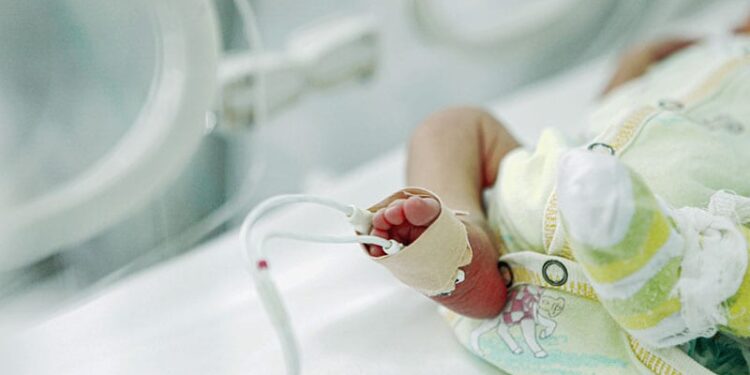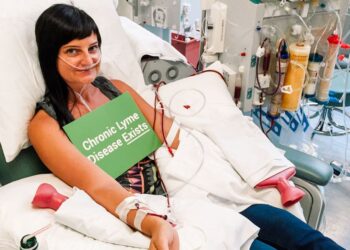TOPLINE:
Early-onset neonatal sepsis was associated with an approximately twofold increased risk for childhood epilepsy later in life, whereas early-onset meningitis carried an even more pronounced risk with an approximately 10-fold increase.
METHODOLOGY:
- Researchers in Denmark conducted a population-based cohort study to examine the association between early-onset neonatal infection and subsequent childhood epilepsy.
- They included 981,869 live-born singleton infants (median gestational age, 40 weeks; 51% boys) who were born at ≥ 35 weeks of gestation without congenital anomalies and identified using linked registries from 1997 to 2013.
- Early-onset infection was defined as an invasive bacterial infection occurring within the first week of life and was classified as either clinically diagnosed or culture-confirmed sepsis or meningitis.
- Children were followed up until the first occurrence of epilepsy, ascertained via a hospital diagnosis or two redeemed antiepileptic prescriptions, or a censoring event, such as death, emigration, entry into adulthood, or mid-2021, whichever came first.
TAKEAWAY:
- Among the 981,869 children, 0.8% were diagnosed with sepsis and less than 0.1% diagnosed with meningitis; overall, 1.2% of children developed epilepsy during the study period.
- Children with clinically diagnosed sepsis experienced a higher risk for epilepsy than their uninfected peers (adjusted hazard ratio, 1.85; 95% CI, 1.60-2.13; incidence rate per 1000 person-years, 1.6 vs 0.9).
- Children with culture-positive sepsis had a twofold higher risk for epilepsy than uninfected children (incidence rate per 1000 person-years, 2.3 vs 0.8).
- Early-onset meningitis was linked to a markedly elevated risk for subsequent epilepsy among diagnosed cases (incidence rate ratio [IRR], 9.85) and culture-positive cases (IRR, 16.04).
IN PRACTICE:
“Additional research is needed to investigate the long-term effects of early bacterial infections in various settings to improve our understanding of the global impact of the disease,” the authors wrote.
SOURCE:
This study was led by Mads Andersen, MD, Aarhus University Hospital, Aarhus, Denmark. It was published online on July 07, 2025, in JAMA Network Open.
LIMITATIONS:
A lack of a standardised definition for neonatal sepsis may have led to misclassification of some cases. Bacteria-specific analyses were limited due to few infections with a known pathogen. Survivor bias might have underestimated the true associations if infants who died had been at a higher risk for epilepsy. The findings could not be generalised to low- and middle-income settings as the study was conducted in a high-income country.
DISCLOSURES:
This study was supported by the Graduate School of Health at Aarhus University, Elsass Foundation, Helsefonden, and Beckett Foundation. One author reported receiving grants from MinervaX ApS paid to the Department of Clinical Microbiology, Lillebaelt Hospital. The other authors reported having no conflicts of interest.
This article was created using several editorial tools, including AI, as part of the process. Human editors reviewed this content before publication.
Source link : https://www.medscape.com/viewarticle/newborn-sepsis-doubles-childhood-epilepsy-risk-2025a1000ibg?src=rss
Author :
Publish date : 2025-07-14 12:00:00
Copyright for syndicated content belongs to the linked Source.







